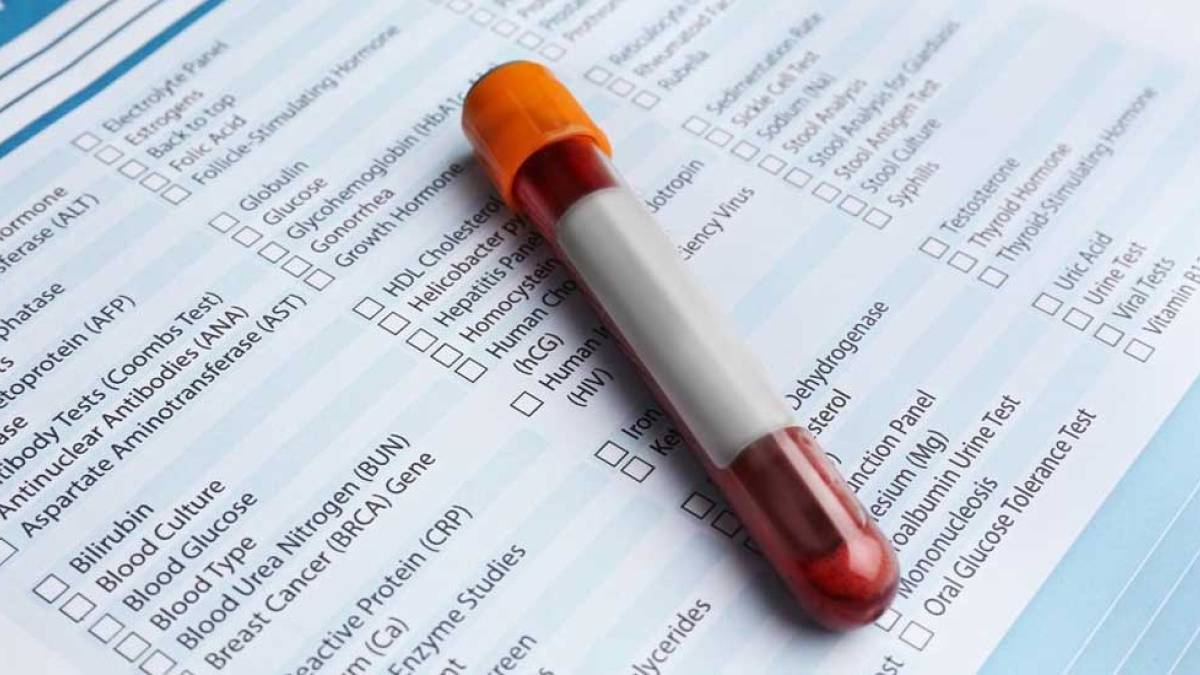7 important preventive tests that you must undergo

New Delhi : When people think about preventive health checkups, they often feel skeptical about taking them. They think that they do not need to undergo these tests unless prescribed by a doctor or that the health checkups are conducted only to diagnose lethal conditions such as cancer, stroke, heart-related ailments etc. All of which is not true. Preventive health checkups are basically conducted to help people stay informed about their present health status and be able to detect an underlying condition even before it becomes symptomatic.
Various hospitals, labs and healthcare platforms offer comprehensive diagnostic test packages for the early detection and diagnosis of various medical conditions. These packages have been formulated in such a way that people with different age groups can opt for different packages and get themselves tested for the most common conditions and lifestyle disorders that may be affecting their health.
If you are worried that these tests will cost a lot, you may simply look for full body checkup prices on Google or on online healthcare platform such as docprime. By doing so, you will be able to find the right type of test packages that include all the diagnostic tests you may need. Also, if you are wondering what basic tests you must undergo, here is some information for you. Mentioned below are 7 most important diagnostic tests that can help you assess the functioning of your body.
Some must-do tests for every individual
1. Thyroid gland check up
The thyroid gland is a small butterfly-like gland present in the front of the neck. This gland is responsible for producing several hormones that help to maintain the metabolic activity of the body. Any problem in the functioning of this gland may lead to severe health issues in the patients. The problems pertaining to the functioning of the thyroid gland are usually not easily visible and can be detected only through blood tests. Thyroid function tests are a series of blood tests which are conducted to measure the levels of various hormones produced by the gland namely triiodothyronine (T3), thyroxine (T4) and TSH (thyroid stimulating hormone).
2. Kidney function test
A human body comprises of two kidneys on either side of the spine and each kidney is the size of the human fist. The kidneys play a vital role in maintaining the health of a person. Their most important job is to filter waste material from the blood and excrete it in the form of urine. The organs also help to maintain the levels of essential minerals and water in the body. Kidney function tests are simple blood tests that can help to identify if there is any problem with the kidneys. Some of these tests include -
- Serum creatinine test
- Blood Urea nitrogen test
- Estimated GFR
3. Liver Function Test
The liver is a large organ present on the right side of the belly. The organ filters the blood coming from the digestive tract, prior to passing it to the rest of the body. The liver also detoxifies chemicals and helps to metabolize drugs. Bile juice is also secreted by the liver which helps in the absorption of the fats and fat-soluble vitamins. Some of the most common tests conducted to assess the condition and functioning of the liver include –
- Albumin
- Bilirubin
- Alanine Transaminase (ALT)
- Aspartate Aminotransferase (AST)
- Alkaline Phosphatase (ALP)
4. Complete blood count (CBC)
A complete blood count test is a simple blood test that is conducted for the screening of certain disorders that may be affecting your health. The test determines your blood cell count which further aids in diagnosing conditions such as anaemia, mineral deficiency, vitamin deficiency, bone marrow problems etc. The test checks for the levels of
- Red blood cells
- Haemoglobin
- White blood cells
- Platelets
- Hematocrit
5. Urinalysis
A urinalysis is a diagnostic test of the urine and is used to detect and manage a wide array of disorders such as kidney disease, diabetes and urinary tract infections. The test involves checking the appearance, concentration and content of the urine. Urinalysis may be conducted to check the overall health of a person and to diagnose or monitor a health condition. Urinalysis is conducted on a concentrated urine sample and checks for factors such as -
- The pH level
- Concentration
- Protein level
- Sugar level
- Ketone bodies
- Bilirubin
- Evidence of the infection
- Presence or absence of blood in the urine
6. Cholesterol level test
Cholesterol is a chemical compound found in most body tissues. It is vital for the synthesis of the cell membrane and various hormones. Cholesterol is usually produced by the liver but is also absorbed by the body from the food we eat. Cholesterol can be classified into High-density lipoprotein or good cholesterol and low-density lipoprotein or bad cholesterol. A blood test is conducted to check the level of cholesterol in the blood and it may be indicative of various heart-related disorders.
Read Also : Take Advantage of Healthy Living by These 12 Amazing Health Packages
7. Blood glucose test
A blood glucose test is conducted to measure the level of glucose in the blood. Glucose is a type of sugar which is the body's main source of energy. A hormone called insulin, which is secreted by pancreas helps cells to absorb glucose from the bloodstream. Excessively high or low concentration of glucose in the blood may be a sign of a serious underlying medical condition. Abnormally high levels of glucose may indicate diabetes, a condition that may lead to blindness, heart disease, kidney failure and other complications. Low levels of blood glucose (hypoglycemia) may cause major health problems such as brain damage, if not treated on time.








